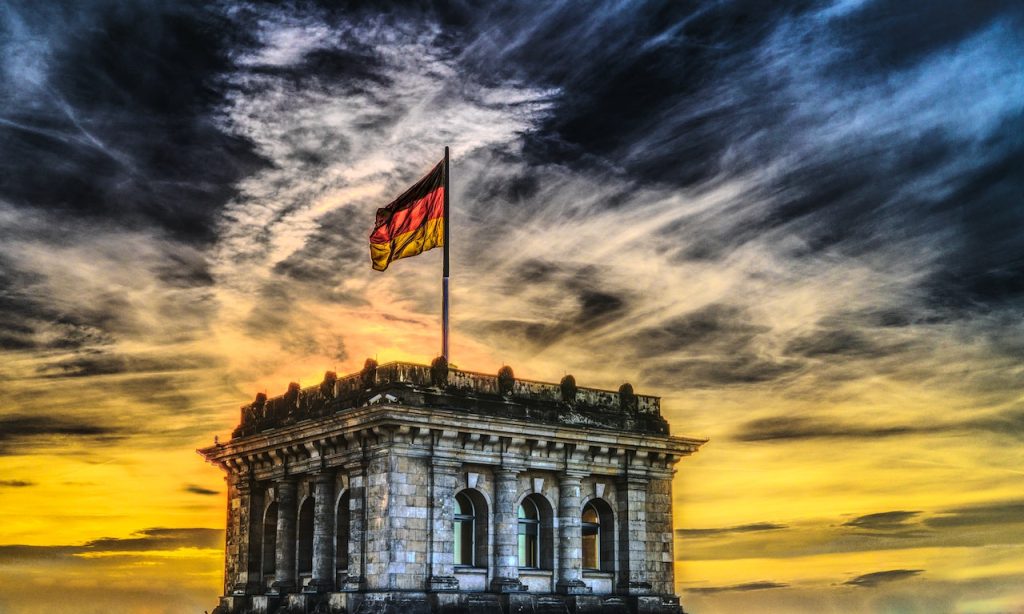Germany’s plans for cannabis legalization have hit roadblocks in Brussels, leading the government to announce a sort of “legalization light” for the moment. The new plans include a two-part model that includes the legalization of home cultivation and the sale of cannabis in certain areas. The Ministry of Health said consultations on the planned bill are still yet to be completed.
Germany Will Not Introduce Full Cannabis Legalization, after All


German Health Minister Karl Lauterbach wanted to introduce cannabis legalization as soon as possible. Now, the leadership of Germany’s Social Democratic Party (SPD) admits it probably won’t happen for a while as the obstacles in Brussels are apparently too great.
German authorities are, therefore, reportedly planning to proceed with a scaled-down version of cannabis legalization after abandoning – at least for now – a more ambitious proposal that would have paved the way for legal cannabis sales throughout the country.
For more legalization news from Europe and around the world, download our free cannabis news app.
Lightweight Cannabis Legalization in Germany
“We are on the right track. We have revised the proposals a bit,” Lauterbach said in brief comments Friday, according to the Zeit. He added that he would “soon” return to the European Union (EU) with a “good proposal” that protects the overall health and safety of young people.
The new plan is a two-part model that appears to be an attempt by German officials to legalize cannabis as widely as possible without going against EU rules.
First, the policy change would allow limited cannabis sales in certain areas – akin to a local pilot program like in Switzerland or, in some ways, the Netherlands – for a period of four years. This would allow officials to see the impact of the reform in both large cities and more rural areas. If the program is deemed a success, it could be expanded to other parts of the country.
Germany to Allow Home Cannabis Cultivation
While this part of the proposal will be submitted to the European Commission for review, Lauterbach’s plan would also allow Germans to grow their own cannabis for personal use, confirming rumors of the upcoming decriminalization of cannabis in Germany. This change would not require a green light from the EU.
Details of the home cultivation rule have not yet been finalized, but reports indicate that consumers could be allowed to possess 20 to 30 cannabis plants under the proposal. In addition, non-commercial growers would then be able to organize and distribute cannabis among themselves through Cannabis Social Clubs like those that already exist in Spain.
Supporters of legalization in Germany said Friday that they were eager to learn more about Lauterbach’s proposal.
“Finally! Kristine Lütke, a member of the German parliament and the Free Democratic Party’s spokesperson on addiction and drug policy, wrote on Twitter, “I’m really looking forward to learning more about Mr. Lauterbach’s proposal. “Really looking forward to hearing the exact details!”
A Failure of Cannabis Legalization Not Yet Acted Upon
All of these measures fall far short of the traffic light coalition’s original plan to fully legalize cannabis in the short term. For some time, there were indications that this project would encounter obstacles in Brussels. With its decision, the SPD leadership now admits that these obstacles are probably too great and that legalization should, therefore, not be expected anytime soon.
“Our goal remains a complete legalization that also covers cultivation and distribution in accordance with European law. We support the federal government in taking the necessary measures,” the SPD emphasized. Minister Lauterbach actually wanted to present a law for the legalization of cannabis throughout Germany at the end of March, for which he had already presented background information. The draft was then to be sent to the European Commission in Brussels for review.
Lauterbach Still Wants Full Legalization
With such a regulation, the German government wanted to go beyond the simple decriminalization that other countries have introduced. However, it was always considered uncertain whether the German draft would be compatible with an EU framework decision. This obliges EU member states to criminalize the illegal trade in drugs such as cannabis. After a visit to Brussels, Lauterbach recently reported very good feedback.
The Ministry of Health told Spiegel that consultations on the planned bill have not yet been completed. Lauterbach wants to stick to “full legalization.”
—
(Featured image by Felix Mittermeier via Pexels)
DISCLAIMER: This article was written by a third-party contributor and does not reflect the opinion of Hemp.im, its management, staff, or its associates. Please review our disclaimer for more information.
This article may include forward-looking statements. These forward-looking statements generally are identified by the words “believe,” “project,” “estimate,” “become,” “plan,” “will,” and similar expressions. These forward-looking statements involve known and unknown risks as well as uncertainties, including those discussed in the following cautionary statements and elsewhere in this article and on this site. Although the company may believe that its expectations are based on reasonable assumptions, the actual results that the company may achieve may differ materially from any forward-looking statements, which reflect the opinions of the management of the company only as of the date hereof. Additionally, please make sure to read these important disclosures.
First published in Newsweed, a third-party contributor translated and adapted the article from the original. In case of discrepancy, the original will prevail.
Although we made reasonable efforts to provide accurate translations, some parts may be incorrect. Hemp.im assumes no responsibility for errors, omissions or ambiguities in the translations provided on this website. Any person or entity relying on translated content does so at their own risk. Hemp.im is not responsible for losses caused by such reliance on the accuracy or reliability of translated information. If you wish to report an error or inaccuracy in the translation, we encourage you to contact us.



Comments are closed for this post.